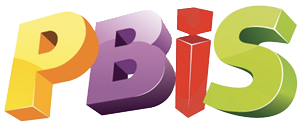- JCCS
- Home

-
What is PBIS?
Click Here to Visit PBIS in JCCS Schools
Positive Behavior Intervention and Supports (PBIS) is a systems approach to school-wide and classroom discipline designed to enhance the capacity of schools to educate all students. PBIS is a research-based, data-driven model that works with all students including those with challenging behavior problems.
The major premise of PBIS is that like academics, behaviors are learned and should be taught. By directly teaching expected behaviors, students are better able to understand behavioral expectations. Schools create and post behavioral matrices in all areas of the school that detail expected behaviors using examples and non-examples of that behavior. The entire school staff is involved in teaching appropriate behaviors to all students by providing targeted practice of the behaviors.
Lesson plans and activities all relate back to the specific school-wide expectations. All staff and students at both middle schools use the same language to articulate appropriate behaviors along with sincere enthusiasm and universal support.
PBIS: A Response to Intervention – The Behavioral Side of the Triangle
PBIS is a proactive system that applies a three-tiered system of support and a problem-solving process as part of Wauconda CUSD 118’s Response to Intervention (RtI) model to enhance the capacity of the schools to educate all students.
PBIS is recommended by the No Child Left Behind Act (NCLB) and the Individuals with Disabilities Act of 2004 (IDEA 2004) and aligned with the Social-Emotional Learning Standards.
PBIS Tiers
-
Tier 1
Core PBIS Curriculum 80-90%
Core Instruction
For all students in the class -
Tier 2
Small-Group social/emotional interventions 5-10%
For some students (At-Risk)
Provided in addition to Tier 1 -
Tier 3
More intensive social/emotional interventions, about 1-5%
For a few students
Provided in addition to Tier 1 & Tier 2

